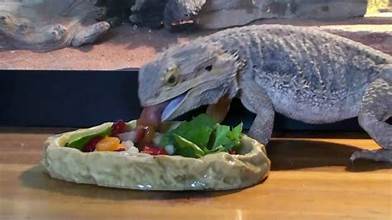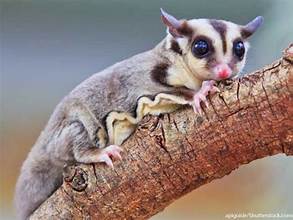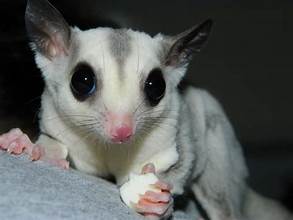So you’re thinking about adopting a bearded dragon? That’s fantastic! These captivating reptiles are becoming increasingly popular pets, but before you welcome your new spiky friend home, it’s crucial to understand their dietary needs. Bearded dragons are omnivores, meaning they munch on both plants and animals. But what exactly goes into a healthy bearded dragon diet?
Bearded dragons eat both plants and animals. But what exactly goes into their unique nutritional needs? Here’s a breakdown of what your bearded dragon needs to stay happy and healthy:
Balancing Bugs and Greens:
Veggies:
The base of a bearded dragon’s diet (roughly 80% for adults) should be leafy green vegetables and chopped veggies. Think colorful and diverse! Collard greens, mustard greens, dandelion greens, and romaine lettuce are all excellent choices. Bell peppers, shredded carrots, butternut squash, and green beans are all excellent choices. Give only a little iceberg lettuce and celery, as they are mostly water with minimal nutrients.

Fruits:
Fruits are tempting treats, but limit them to 10-20% of your dragon’s diet. Berries, melons, and chopped apples are all crowd-pleasers but go easy on the sugar content.

Protein Power:
Insects are vital to a bearded dragon’s diet, especially for young dragons. Crickets, mealworms, and dubia roaches are excellent choices. Dust these feeders with calcium powder a few times weekly to ensure proper bone growth. Avoid overdoing fatty feeders like superworms, which can lead to obesity.
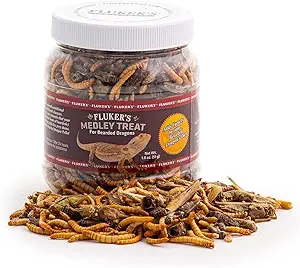
General Feeding Tips:
Embrace variety:
A diverse diet is crucial and exciting for your bearded dragon’s health. Rotate different types of greens, veggies, and insects to prevent them from becoming picky eaters and keep their diet interesting.
Control Portions:
Bearded dragons can be little piggies, so it’s up to you to ensure they don’t overeat. As a rule of thumb, young dragons can eat as much as they’ll consume in a 15-minute feeding session, while adults need much less. It’s all about responsible feeding.
Baby vs. Adult Dragons:
The ratio of plants to insects in your bearded dragon’s diet will change as it grows. Young dragons need more protein for growth, so their diet may be closer to 50% insects and 50% plants. Adult bearded dragons, on the other hand, should have a diet that’s roughly 80% plants and 20% insects.
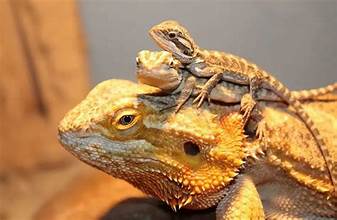
Calcium Dusting:
Dust your feeder insects with calcium powder a few times a week to ensure your bearded dragon gets the calcium they need for strong bones.
Supplements:
Consult your veterinarian about vitamin and mineral supplements to fill nutritional gaps.
Remember:
Freshwater is essential. A clean, shallow dish of fresh water that’s easily accessible.
Variety is key. Offer diverse vegetables and insects to prevent nutritional deficiencies and interest your dragon.
Consult your vet. They can tailor a diet to your bearded dragon’s age, health, and activity level.
If you’re ever unsure about what to feed your bearded dragon, it’s always best to consult with a veterinarian. Who can help you create a personalized feeding plan that meets your dragon’s needs?
Giving your bearded dragon a balanced and nutritious diet prepares them for a long and healthy life. Happy herping!
Following these guidelines can ensure your bearded dragon gets the nutritious fuel to live a long, healthy, and happy life. You can become a bearded dragon dietary pro with little research and planning!
Remember:
These are just general guidelines. But you’re not alone in this. Consult your veterinarian for specific feeding recommendations based on your bearded dragon’s age, health, and activity level. They’re there to support you and your dragon.
By feeding your bearded dragon a balanced and varied diet, you’ll be well on your way to a happy and healthy reptile companion!

